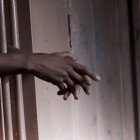
Looking Back and Casting Forward: An Emerging Shift for Juvenile Justice in America
|
This story produced by the Chicago Bureau. The close of 2012 focused so narrowly on terrible events and startling numbers - the Newtown massacre, for example, or Chicago’s sharp rise in homicides - some major criminal justice developments were nearly squeezed out of the national conversation. Take the statements made just over a week ago by Cook County Board President Toni Preckwinkle, who vowed to take on the tricky issue of the skewed racial picture in the county’s corrections and justice system, including within the juvenile justice system. Speaking to a group of reporters, the news – including a statement that she will “work with the actors in the public safety arena” to lessen the overall corrections population and push alternatives to locking up non-violent offenders – the story got little more than a day’s play on the airwaves and in other media. Always outspoken, the board president served many years as an alderman fighting for various social justice causes, including race and drug issues (she at one point challenged the validity of any national “war on drugs”).
